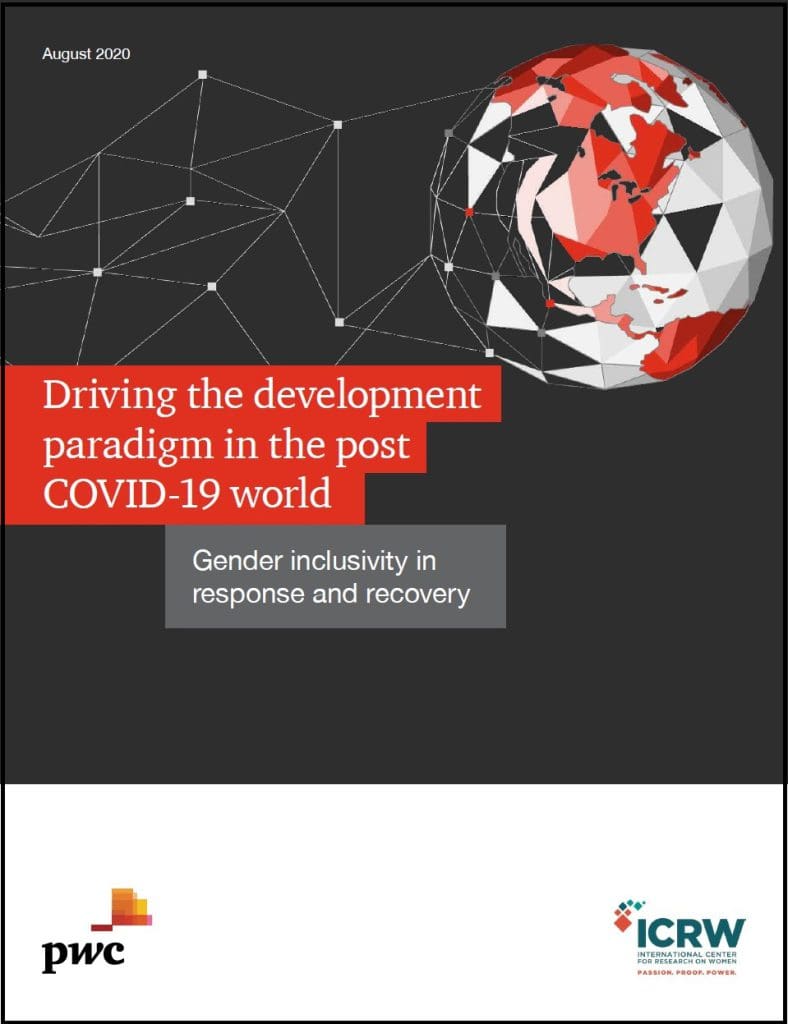
Driving the development paradigm in the post COVID-19 world
Care economy, Education, Employment and Enterprises, Health, Violence Against Women and Girls
Gender inclusivity in response and recovery
2020
Originally posted on PricewaterhouseCoopers (pwc)’s website under Crisis Management and under Government Reforms and Infrastructure Development (GRID), August 2020.
The COVID-19 pandemic has led to an unprecedented health crisis in India. At the same time, measures to respond to COVID-19 (including social containment measures such as lockdowns and curfews, physical distancing and restrictions on mobility) have had a profound social and economic impact on the lives of people across the country.
Further, evidence shows that COVID-19 affects the population neither equally nor in the same way, with risks and vulnerabilities determined by a complex intersection of factors.
In many ways, COVID-19 has exacerbated various inequalities and inequities that existed long before the current health crisis, with many groups – including adolescents, women, persons with disabilities (PwDs), and displaced persons – at the threshold of marginalization.
As the country gradually unlocks, it becomes imperative to analyse the widening gender gap caused by the pandemic in order to make rehabilitation efforts more inclusive and gender-sensitive.
![]()
KEY CONSIDERATIONS
Over the course of our project, ICRW and partner PricewaterhouseCoopers (pwc) explored:
- The gendered impact of the COVID-19 pandemic in India;
- specifically focused on disruptions in education, interruptions in health services, gender-based violence, economic fallout, and the burden of unpaid care work.
- The lack of women’s representation in leadership and decision making;
- Global and national response initiatives addressing gendered inequities and vulnerabilities in light of COVID-19; and
- Our proposed way forward for a more inclusive approach to recovery.
![]()
RECOMMENDATIONS
After exploring the multilayered impacts of COVID-19, we are here proposing a three-dimensional approach to a gender-transformative and inclusive response and recovery:
- address the need for sex-disaggregated data for gender analysis;
- bridge gender gaps and inequities by enhancing women’s access to key social, economic and health resources; and
- enhance women’s participation and leadership at all levels of response, including planning, implementation, monitoring, and accountability.
Thanks to the following individuals for their contributions to this report: Dr Ravi Verma, Director, ICRW Asia; Kaustabh Basu, Executive Director, Agriculture and Social Sector, PwC India; and Sujata Mullick, Associate Director, Agriculture and Social Sector, PwC India.
Read the full report by clicking below.
© 2020 PricewaterhouseCoopers Private Limited. All rights reserved.

